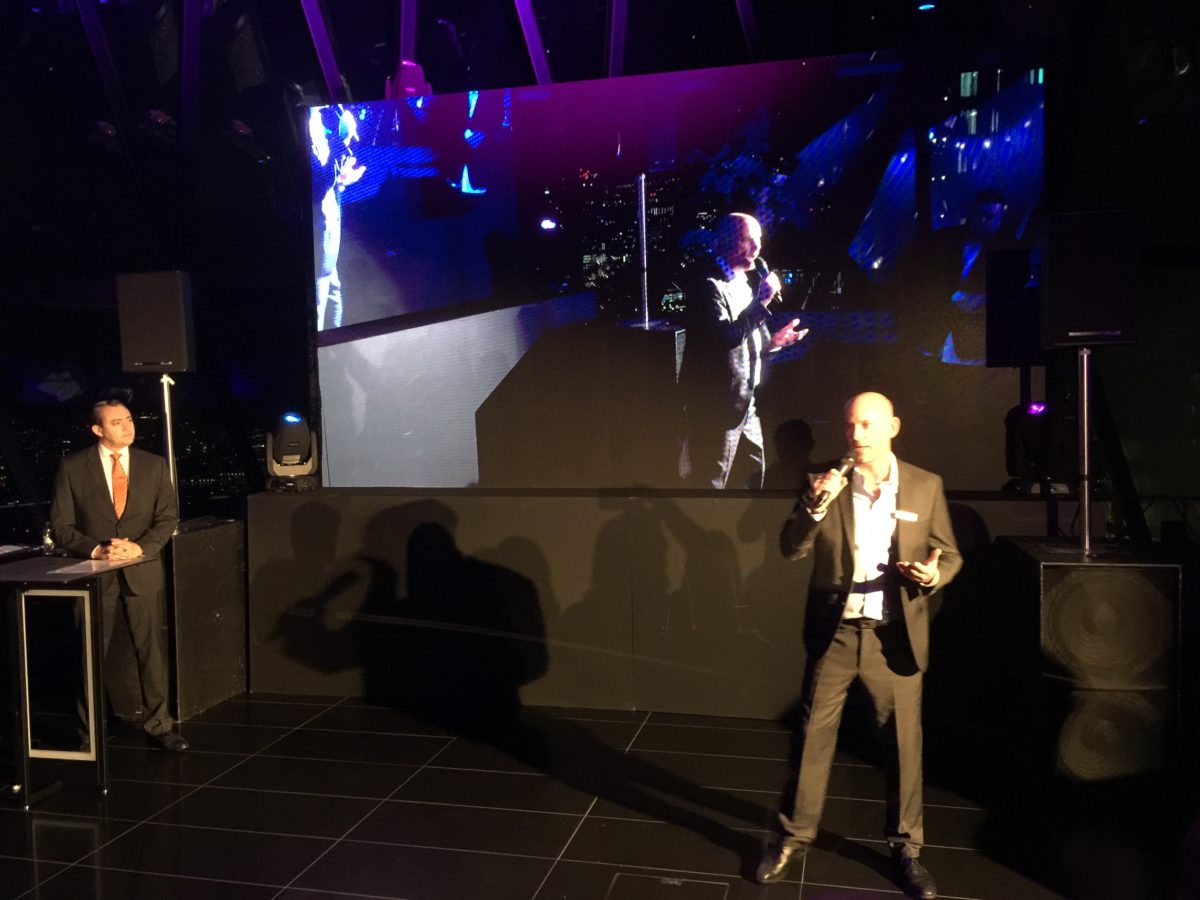Social Energy is the newest player to arrive on the United Kingdom’s electricity and gas utility scene. It launched last night at an event in London’s city center.
The business model
The utility claims it does things differently and guarantees its customers can “reduce their electricity bills by up to 70% and gain access to 100% renewable energy”.
Its business model includes solar PV panels, battery systems and an intelligent algorithm, which the firm names the Social Energy Network.
Some savings are planned to come via Social Energy’s trading with the National Grid, which owns and operates the country’s transmission system.
In fact, it claims it is “the first home energy trading solution to be fully compliant with National Grid’s dynamic frequency response service”, with the batteries installed in customers’ homes providing services to the grid.
Further to National Grid’s frequency response payments and savings from self-generating and self-consuming solar PV energy, some additional savings will come via avoiding the peak cost of electricity at wholesale prices.
Social Energy CEO Ryan Gill told pv magazine the firm expects to receive an electricity and gas supply license by February, when it will then be able to offer customers a variable flexible tariff so they can reap the benefits of flexibility services.
Synergies
Perhaps the most important element of this new business venture, is Social Energy’s synergy with established players in the energy market. One of these is battery manufacturer Duracell.
Javier Hernandez, Duracell’s president for Europe and Africa, told the event that electricity grids will become increasingly local and, together with Social Energy, the company wants to make battery storage the business model of the future.
Social Energy is also collaborating with other home battery storage manufacturers and says it is willing to work with customers who own different battery brands.
Additionally, the utility is cooperating with Project Solar UK, a solar PV and battery installer. Project Solar UK’s Tom Armstrong told the event that while only 9% of its customers bought a battery system, they see battery sales increasing significantly.
Their customers, added Armstrong, will save more by combining with Social Energy’s intelligent software trading systems.
Tough times
Times are tough though. The United Kingdom’s retail energy market is dominated by the “Big 6” utilities. Their share of the market has been constantly decreasing since 2010, with a plethora of new utilities entering the market, often offering smart solutions, like those of Social Energy.
However, big utilities, which also own large generation assets, are often greatly supported by capacity market payments, which offer them an advantage.
By contrast, small renewable energies, like home solar PV systems, have seen their subsidy payments drastically cut in the last few years, and there is even more uncertainty about future payments.
Moreover, the latest stage of the Targeted Charging Review consultation, opened yesterday by the country’s electricity and gas regulator Ofgem, might impact solar and home battery systems owners the most.
Under the proposals, Ofgem would apply fixed residual charges to all energy users, making the business case for companies offering flexibility in their services less generous.
Residual charges are used to ensure electricity grid companies can recover their costs. Because residual charges are currently variable, some power end users can adjust their consumption – mainly via solar, storage and demand side response systems – to reduce residual costs.
Should Ofgem apply a fixed capacity charge for each demand meter, final consumers will not have an incentive to adjust their power use, and the dynamic use of the energy grids will be discouraged. Innovative firms offering contracts based on flexibility will also be able to offer reduced savings for their customers.
Overall, competition in the United Kingdom’s retail energy industry is tough. Last week, Extra Energy and Spark Energy were the sixth and seventh small power utilities, respectively, to go bust this year.
International plans
Nevertheless, Social Energy’s team looks determined to make the difference. Mr. Gill told pv magazine the company is conducting market analysis and aiming to expand abroad.
Australia, he said, is top of the list of international markets the utility will target. This is due both to the market’s characteristics, and because the firm has access to a network of local contacts.
This content is protected by copyright and may not be reused. If you want to cooperate with us and would like to reuse some of our content, please contact: editors@pv-magazine.com.



I am trying to get some insight into Social Energy and it’s relationship with Project Solar.
This is primarily about a faulty battery installation and months and months (now 9 months) to correct the problems.
My concern is that I have to deal with Social Energy because they control the ”hub” but their claim that it is the responsibility of Project Solar as the battery installer.
However the contract as presented to me and all the PR that goes with it is in the joint names of Project Solar and Social Energy.
There are other issue also.
During early March ’20 an engineer was scheduled to visit my home but I asked after several days of waiting I was advised that the engineer had to take Compassionate Leave and then after a respecful period of waiting I was advised that the Virus prevented any home visited.
The reality is the remedial work will only take one day yet I have been asking for the matter to be sorted since June ’19.
The other issues can be dealt with electronicly and thankfully I may have found somebody in Social Energy who is helpful